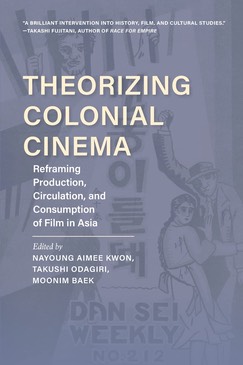News and Opinion
Theorizing Colonial Cinema: Japanese Film Theory and Empire

In my research on Japanese film theory, I have always tried to complicate the concept of “Japanese” in the name of the topic. I do that not just through critiquing the desire to find the origins of such film theory in supposedly “traditional” aesthetics, but also through recognizing that “Japan” and the nation were often contested within film theory. If Tsumura Hideo or Sawamura Tsutomu conceptualized cinema in support of Japan’s “holy war,” Tosaka Jun critiqued the ideology of Japan while attempting to conceive of film as an alternative way of knowing (his resistance eventually put him in jail, where he died).
Yet one of my regrets with the anthology we produced, Rediscovering Classical Japanese Film Theory, is that we did not include any thinkers writing in Japan’s colonies or colonial spaces. We in effect reproduced the geography of the nation by picking authors who were Japanese citizens writing in Japan and in Japanese. It is in part regret over that that I did some research on some of the theory that we missed. This was occasioned by a conference that took place at Duke University in November 2016 (I remember the general funk over and the protests against Trump’s victory). My paper was, on the one hand, a continuation of my thinking about the internalization of empire that I explored in my article "Colonial Era Korean Cinema and the Problem of Internalization" (which you can read here). Was film theory in the colonies internalizing the ideologies of Japanese film theory? But on the other hand, it was also an attempt to show that we cannot discuss Japanese film theory without thinking about empire—that empire is part of the “Japanese” in Japanese film theory.

